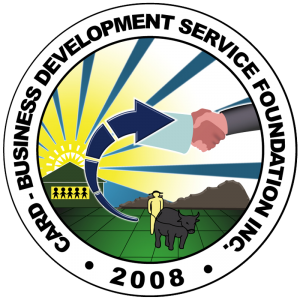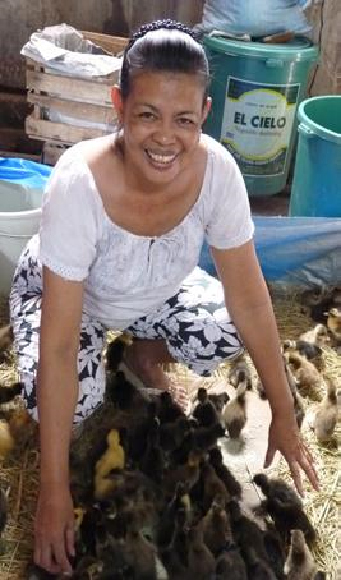Agnes Ornos
Balut, penoy, bakery
Agnes Ornos resigned from her job as a Community Organizer for Mangyan Program for Development in Socorro, Oriental Mindoro in 1993 because she wanted to take care of her kids. She started her balut and salted eggs business in the same year.
“Ducks won’t lay eggs if they are not fed properly”, she said. Since commercial feeds are expensive, a common practice in her province is taking the ducks to the rice fields after harvest so they can feed for free on the left-over grains. Agnes pays P4,000 per trip for a truck to transport her 2,000 ducks to a nearby town where rice is being harvested. Sometimes, the ducks are brought as far away as three towns from Socorro. The ducks stay in the rice fields for a month with five workers taking care of them. Workers are each paid P1,200-P1,500/month with a daily food allowance of P50 per person. The ducks are only fed commercial feeds during off-season when there is no rice harvest.
Many duck raisers though can hardly afford the commercial feeds. This predicament became a window of opportunity for Agnes and CARD BDS. In 2006, through the Agricultural Trading Program, Agnes was granted an initial loan of P300,000 to start a commercial duck feeds trading business. CARD BDS assisted Agnes in finding a feeds manufacturer who can give them a good price. They found one in San Pablo City in Laguna. At that time, she had 20 suppliers of duck eggs. She provided them with commercial duck feeds on credit and in turn, the duck raisers pay her with duck eggs. Agnes saw the resulting mutual benefit of her feeds trading business. The duck raisers felt confident that even without cash, they could obtain feeds for their ducks to lay eggs. Agnes was happy because she was assured of a steady egg supply for her balut and salted egg business.
She honed her skills in managing a business from numerous CARD BDS seminars and trainings. She declares, “I am not extravagant. My business earnings are invested in some other income-generating activities and fixed assets”. In 2006, she bought a previously rented space where she sold commercial feeds, balut, penoy, salted eggs and grocery items. A tricycle was also acquired in the same year. With P150,000, she started a bakery business in 2007 in the space adjacent to her store. At the same time, she and her husband acquired a 2,000 – square meter farm lot. The next year, the couple acquired two residential lots and in 2010, they bought another commercial lot in the market place and where they put up a grocery store. A year after, they purchased a second-hand owner-type jeepney. Her family though had their share of misfortune when the van which they bought in 2009, figured in an accident and hurt three people. They spent around P100,000 for damages and hospitalization. They were thankful that their businesses were thriving and they did not have to borrow to pay for such expenses. Agnes and her husband decided to sell the van later thinking that the vehicle was not a good investment.
A graduate of BS in Agriculture from the Mindoro State College of Agriculture, Agnes knows the value of education. Her eldest son, Kenneth, has finished a business administration degree at the Polytechnic University of the Philippines, the same school where her youngest daughter, Leah, is taking up Political Economics. Her second son,
Eric, is a BS Biology sophomore at UP Diliman. He wants to be a doctor. Agnes says the assets and businesses she
has invested in will be her legacy to her children.
Not to let any opportunity pass, Agnes has added chicken eggs to her products and has expanded her market to Pinamalayan in 2008, Puerto Galera in 2009, and Roxas in 2010. Presently, with a P300,000 capital and 12 workers, Agnes produces 50,000 balut every two weeks which she sells for P9 each. In addition, she makes 50,000 salted eggs with a capital of P150,000, and sells them at P8 each. Her profit for the two products alone is P400,000. Balut making peaks during the rice harvest season. During off-peak season, Agnes augments her balut supply for trading by buying balut from fellow balut makers. She finds this arrangement more profitable because she deals with less people and has less transaction costs.
Although her businesses are doing well, Agnes is still planning to raise pigs and manufacture animal feeds through natural farming. She thinks that she has established her credibility with feeds suppliers and various customers so she wants to capitalize on such connections.
In 2005, she took out a P650,000 loan which at that time, according to her was the highest amount given to a member. Agnes has come a long way. “Before, my town mates regarded me as a mere balut vendor. Now, even my children feel
proud of my new status as a businesswoman”, Agnes muses.
~ Agnes Ornos

